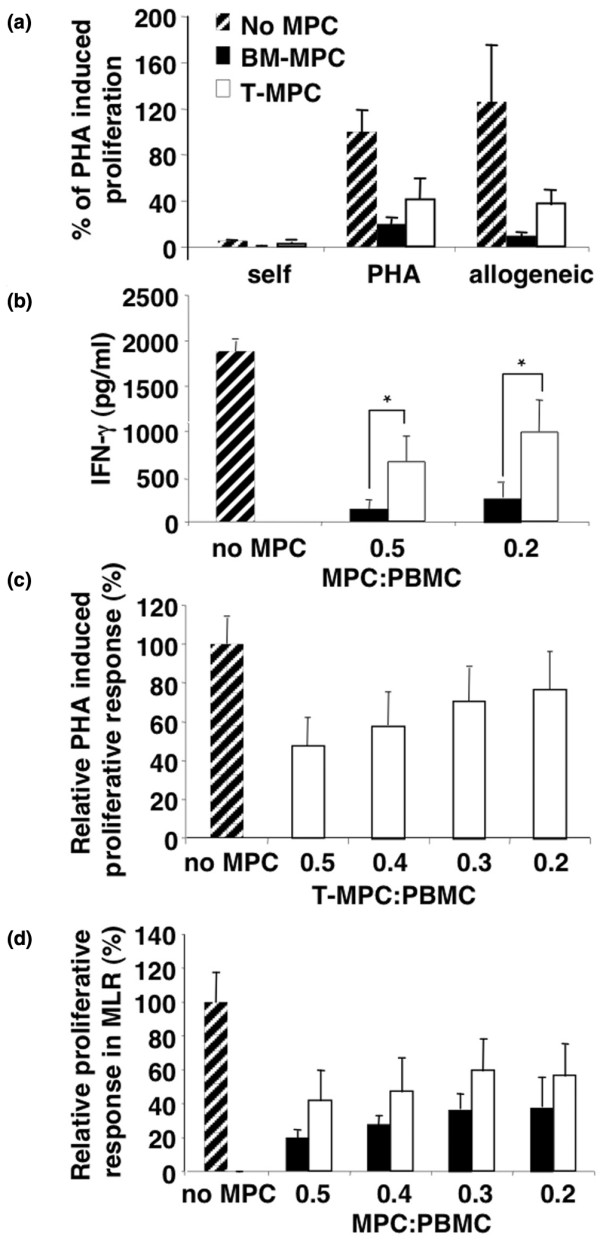Figure 4.

Tonsil-derived mesenchymal progenitor cells (T-MPCs) inhibit allogeneic as well as phytohemaglutinin (PHA)-induced proliferative response in a dose-dependent manner regardless of the species of T cells. Responding peripheral blood mononuclear cells (PBMCs) (105 cells) were incubated for 3 days with either 5 μg/mL PHA or allogeneic stimulating PBMCs (1 × 105 cells) with or without bone marrow-derived mesenchymal progenitor cells (BM-MPCs) or T-MPCs (5 × 104 or varying ratios). (a) Cell proliferation based on [3H]-thymidine incorporation. BM-MPCs and T-MPCs inhibit the T-cell receptor-independent (PHA) and -dependent (allogeneic) T-cell proliferative response. The proliferative response (counts per minute per culture) of PHA-induced T-cell proliferation was assigned the value of 100%. All values are mean ± standard deviation (SD) of triplicates. (b) Interferon-gamma (IFN-γ) levels determined by enzyme-linked immunosorbent assay. IFN-γ levels in supernatants obtained from a 3-day proliferative assay using PBMCs stimulated with 5 μg/mL PHA with or without BM-MPCs and T-MPCs at the indicated ratios. Values are mean ± SD (n = 3) and *, P < 0.05 versus BM-MPCs. (c) Dose-dependent inhibitory effect of T-MPCs on PHA-induced T-cell proliferation. T-MPCs exhibit a dose-dependent inhibition of PHA-induced T-cell proliferation. Results (mean ± SD, n = 3) are expressed as the percentage of T-cell proliferation obtained in the absence of T-MPCs. (d) Dose-dependent inhibitory effect of T-MPCs and BM-MPCs on T-cell proliferative response induced by xenogeneic murine splenocytes in a mixed lymphocyte reaction (MLR). Results (mean ± SD, n = 3) are expressed as the percentage of the responder-stimulator pair response in the absence of MPCs. T-MPCs and BM-MPCs inhibit the T-cell proliferative response in a dose-dependent manner.
